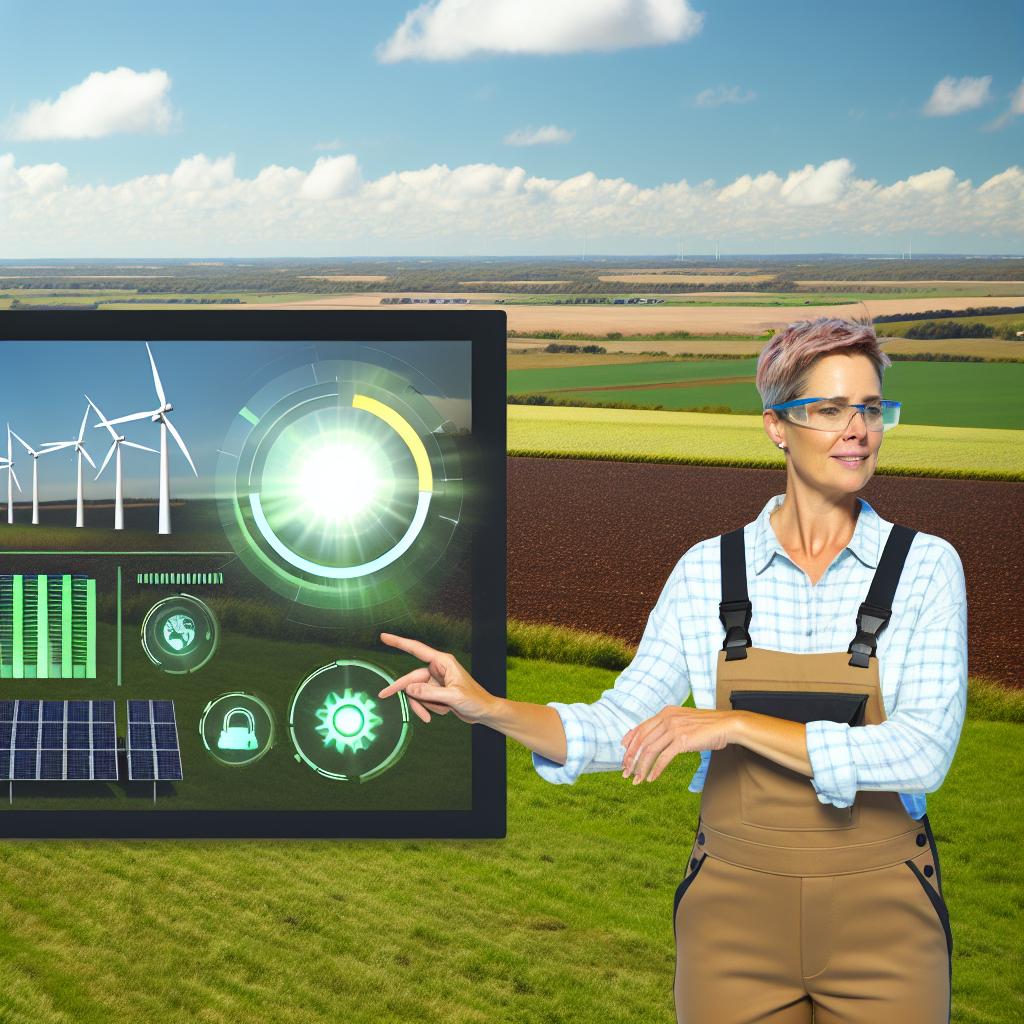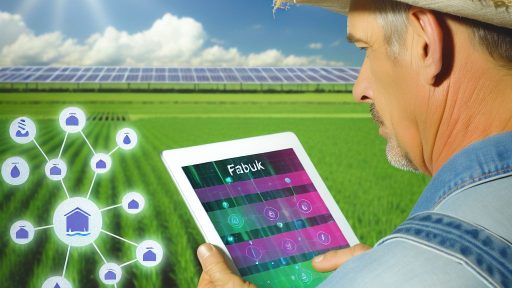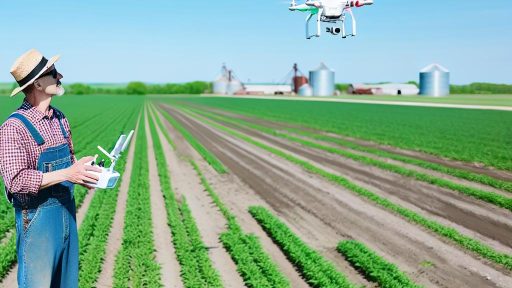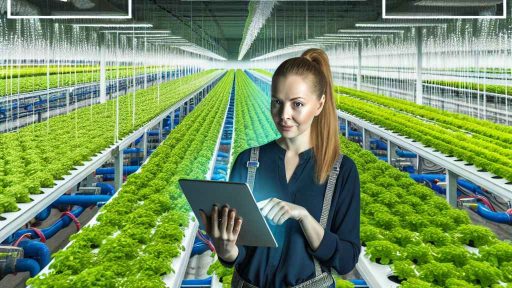Introduction to Smart Energy Management Systems in Agriculture
Smart energy management systems are transforming modern farming.
These systems optimize energy use and enhance efficiency.
They harness advanced technologies to manage energy resources.
Increasing energy costs and environmental concerns drive their adoption.
Understanding Smart Energy Management Systems
Smart energy management systems utilize data and analytics.
They monitor energy consumption across various farm operations.
Furthermore, these systems integrate renewable energy sources.
Common technologies include smart meters and sensors.
They offer real-time insights into energy usage patterns.
Benefits for Modern Farms
Implementing these systems leads to significant cost savings.
Farmers can reduce energy waste effectively.
Moreover, smart systems enhance operational efficiency.
Predictive maintenance helps prevent equipment failures.
Farmers can also achieve sustainability goals more easily.
Case Studies of Successful Implementation
Several farms worldwide demonstrate successful smart energy practices.
Transform Your Agribusiness
Unlock your farm's potential with expert advice tailored to your needs. Get actionable steps that drive real results.
Get StartedThe Green Acres Farm reduced energy costs by 25% using smart technology.
Little Creek Orchards integrated solar panels with smart management systems.
They now enjoy greater energy independence and savings.
These examples highlight the potential of smart energy management systems in agriculture.
The Future of Energy Management in Agriculture
The future outlook for smart energy management is promising.
Governments and organizations support sustainable farming initiatives.
Advancements in AI and IoT will enhance these systems even further.
Farmers will increasingly adopt automated solutions for energy efficiency.
The shift toward greener practices will bolster farm profitability.
Key Components of Smart Energy Management Systems
Energy Monitoring and Analysis
Energy monitoring tracks energy consumption in real-time.
This process enables farmers to identify high-usage equipment.
Moreover, energy analysis provides insights into usage patterns.
To analyze energy data, software tools can generate reports.
Data visualization helps operators understand consumption trends.
Smart Metering Technology
Smart meters provide accurate energy readings continuously.
These devices communicate data directly to the farm management system.
With smart meters, farmers can detect irregularities instantly.
This technology supports the integration of renewable energy sources.
Ultimately, it enhances overall energy efficiency.
Automated Energy Controls
Automated systems optimize electrical loads automatically.
They schedule energy-intensive processes during off-peak hours.
This reduction in peak demand lowers overall energy costs.
Additionally, these controls can adjust based on real-time needs.
Such flexibility improves both efficiency and reliability.
Showcase Your Farming Business
Publish your professional farming services profile on our blog for a one-time fee of $200 and reach a dedicated audience of farmers and agribusiness owners.
Publish Your ProfileIntegration of Renewable Energy Sources
Integrating renewable energy promotes sustainability on farms.
Solar panels and wind turbines are popular energy sources.
These resources not only reduce reliance on the grid.
They also minimize the environmental impact of farming operations.
Farmers can benefit from government incentives for renewable installations.
Data-Driven Decision Making
Data analytics informs strategic energy management decisions.
It allows farmers to analyze energy usage and cost implications.
This analytical approach leads to more informed and effective strategies.
Furthermore, it enhances long-term sustainability efforts.
Ultimately, data-driven insights lead to better resource allocation.
Benefits of Implementing Smart Energy Solutions on Farms
Enhanced Energy Efficiency
Smart energy management systems boost energy efficiency on farms.
By optimizing energy use, farmers can reduce waste effectively.
Consequently, this leads to lower energy bills, improving profitability.
Cost Savings
Implementing smart energy solutions leads to significant cost savings.
Reduced energy consumption lowers utility costs over time.
Additionally, farmers can qualify for incentives and rebates.
Improved Sustainability
Smart energy management promotes sustainable farming practices.
Using renewable energy sources reduces carbon footprints.
This approach enhances the farm’s overall environmental stewardship.
Data-Driven Decision Making
Smart systems provide valuable data for informed decision-making.
Farmers can analyze energy usage patterns accurately.
Through this, they can make adjustments to improve efficiency.
Increased Operational Flexibility
Modern smart energy solutions offer greater operational flexibility.
Farmers can automate processes for real-time energy management.
This adaptability helps improve response times to energy needs.
Enhanced Equipment Performance
Smart energy solutions help optimize equipment performance.
This optimization leads to prolonged equipment lifespan.
Farmers benefit from reduced maintenance costs as well.
Scalability and Future Growth
Implementing smart systems supports scalability on farms.
As operations expand, energy solutions can easily adapt.
Therefore, farmers can focus on growth and productivity.
You Might Also Like: Improving Farm Productivity With Advanced Management Software
Case Studies of Successful Smart Energy Integration in Agriculture
Innovative Solutions at Green Acres Farm
Green Acres Farm has adopted an advanced smart energy management system.
This system optimizes energy consumption through real-time data analysis.
As a result, they have reduced energy costs significantly.
The farm utilizes solar panels to harness renewable energy effectively.
In addition, they integrate energy storage solutions to maximize efficiency.
Transforming Energy Use at Sunny Fields Agribusiness
Sunny Fields Agribusiness implemented IoT sensors across their fields.
These sensors monitor soil moisture and weather conditions accurately.
Consequently, the farm can adjust irrigation schedules based on real-time data.
Showcase Your Farming Business
Publish your professional farming services profile on our blog for a one-time fee of $200 and reach a dedicated audience of farmers and agribusiness owners.
Publish Your ProfileThis strategy conserves water and reduces energy use for pumping.
Furthermore, they have seen increased crop yields due to improved management.
Dynamic Optimization at Harvest Moon Orchards
Harvest Moon Orchards has embraced smart lighting technology in their fruit storage facilities.
This technology adapts lighting levels according to the time of day.
Consequently, energy consumption has decreased without compromising quality.
Moreover, the facility monitors temperature and humidity precisely.
This data-driven approach preserves fruit and reduces spoilage rates.
Enhancing Operational Efficiency at Maple Leaf Dairy
Maple Leaf Dairy utilizes smart energy systems to streamline operations.
The system integrates data from milking machines and cooling units.
As a result, energy usage is optimized during peak and off-peak hours.
In addition, the farm has installed biomass heating systems for winter months.
This transition has led to reduced reliance on fossil fuels.
Community Collaboration at Mountain View Farms
Mountain View Farms formed a cooperative for renewable energy initiatives.
They share resources and technology to enhance energy management.
This collaboration has resulted in collective power purchase agreements.
Furthermore, they participate in demand response programs to optimize energy use.
This approach not only reduces costs but also supports local energy grids.
Delve into the Subject: Understanding Agri-Fintech Services For Sustainable Farming Practices
Technologies Driving Smart Energy Management
Internet of Things (IoT)
The Internet of Things (IoT) revolutionizes modern farming practices.
It connects various devices across the farm ecosystem.
These devices collect real-time data on energy consumption.
Farmers can monitor and optimize energy use efficiently.
Smart sensors provide insights into crop conditions and soil health.
This technology enhances precision agriculture capabilities.
Furthermore, IoT allows remote control of equipment and systems.
Artificial Intelligence (AI)
Artificial Intelligence plays a pivotal role in energy management.
It analyzes data gathered from IoT devices.
AI algorithms identify patterns and predict energy needs.
Farmers can thus make informed decisions regarding energy allocation.
AI-powered systems can automatically adjust settings for optimal efficiency.
This reduces waste and cuts down operational costs.
In addition, AI aids in forecasting weather and crop yields.
Big Data
Big Data technologies are essential for smart energy management.
They process vast amounts of data from various sources.
This includes weather patterns, market trends, and equipment performance.
Farmers gain actionable insights through comprehensive data analysis.
These insights support strategic planning and resource allocation.
Big Data also facilitates predictive maintenance of farm equipment.
As a result, farmers enhance productivity and ensure sustainability.
Integration of Technologies
The integration of IoT, AI, and Big Data is crucial.
Showcase Your Farming Business
Publish your professional farming services profile on our blog for a one-time fee of $200 and reach a dedicated audience of farmers and agribusiness owners.
Publish Your ProfileTogether, these technologies create a smart farming network.
This network enables seamless communication between devices.
Ultimately, it ensures optimal energy management across the farm.
Farmers can adapt quickly to changing conditions with real-time data.
This integration leads to increased efficiency and productivity.
Furthermore, it contributes to sustainable farming practices.
Find Out More: Harnessing Geothermal Energy for Farm Operations

Challenges and Barriers to Adoption of Smart Energy Systems in Farming
Initial Investment Costs
Farmers often face high upfront costs when implementing smart energy systems.
This financial burden can discourage adoption of innovative technologies.
Moreover, lack of immediate return on investment complicates decision-making.
Many farmers may prioritize lower cost options over advanced energy solutions.
Technical Complexity
Smart energy systems often involve complex technology that can overwhelm users.
Farmers may lack the technical expertise necessary to operate these systems effectively.
This knowledge gap can hinder the integration of new technologies into daily operations.
As a result, many farmers hesitate to invest in smart energy management systems.
Lack of Knowledge and Awareness
Many farmers remain unaware of the benefits offered by smart energy systems.
Educational resources on these technologies are often limited or hard to access.
This lack of knowledge prevents farmers from making informed decisions.
Building awareness is essential for encouraging adoption among agricultural communities.
Market Access and Infrastructure Issues
In rural areas, inadequate infrastructure poses a significant barrier.
Poor internet connectivity limits the functionality of smart energy systems.
Additionally, the availability of support services can be lacking in remote regions.
These market access challenges complicate the overall implementation of the technology.
Regulatory and Policy Hurdles
Farmers often navigate a complex landscape of regulations regarding energy use.
Patches of unclear or inconsistent policies can create uncertainty in decision-making.
Moreover, incentives for adopting smart energy technologies may be insufficient.
Understanding and addressing these regulatory barriers is essential for progress.
Find Out More: Agri-Fintech: Bridging The Gap Between Farmers And Financial Services
Future Trends in Smart Energy Management for Sustainable Agriculture
Integration of Renewable Energy Sources
Farmers increasingly adopt renewable energy technologies.
Solar panels become commonplace in agricultural settings.
Wind turbines offer additional clean energy options.
Hybrid systems combine various sources for efficiency.
This integration reduces dependency on fossil fuels.
It also helps farmers save on energy costs.
Artificial Intelligence and Machine Learning Applications
AI technology enhances energy management systems.
It allows real-time monitoring and data analysis.
Predictive analytics optimize energy consumption patterns.
Machine learning adapts to changing conditions effectively.
This results in smarter energy distribution across farms.
Smart Grid Connectivity
Smart grids transform energy distribution in agriculture.
Showcase Your Farming Business
Publish your professional farming services profile on our blog for a one-time fee of $200 and reach a dedicated audience of farmers and agribusiness owners.
Publish Your ProfileThey enable two-way communication between producers and consumers.
This connectivity enhances energy efficiency and reliability.
Farmers can sell excess energy back to the grid.
Such practices create additional revenue streams.
Energy Storage Innovations
Advancements in energy storage technologies are crucial.
Batteries enable the storage of excess energy generated.
This allows for energy use during non-peak hours.
Farmers reduce waste and improve energy reliability.
Moreover, energy independence increases as storage improves.
Emphasis on Sustainability and Carbon Reduction
A growing focus on sustainability shapes energy management strategies.
Farmers aim to lower carbon footprints through innovative programs.
These programs promote the use of eco-friendly practices.
Additionally, they encourage involvement in carbon offset initiatives.
As a result, agricultural practices grow more environmentally conscious.
Best Practices for Farmers Implementing Smart Energy Solutions
Conduct an Energy Audit
Start by assessing your current energy consumption patterns.
This process identifies areas where you can reduce waste.
Engaging a professional can provide valuable insights.
Use the audit results to pinpoint the most energy-intensive operations.
Invest in Energy-Efficient Equipment
Upgrade to energy-efficient machinery and appliances.
Seek equipment that carries an Energy Star rating.
Consider solar-powered alternatives for operations like irrigation.
Always review potential long-term savings from new investments.
Implement Smart Metering Technology
Install smart meters for real-time energy tracking.
This technology can help optimize energy usage.
Monitor peak energy times to adjust your practices accordingly.
Make informed decisions based on data gathered from these meters.
Use Renewable Energy Sources
Explore renewable energy options like solar or wind power.
Investing in solar panels can significantly cut energy costs.
Participate in community energy projects when available.
Consider forms of energy storage to enhance reliability.
Engage with Energy Management Systems
Adopt a smart energy management system for better control.
This system automates energy settings for different operations.
It allows real-time monitoring and adjustments.
Engaging farm employees with system training enhances efficiency.
Stay Informed on Energy Regulations
Familiarize yourself with current energy regulations and incentives.
Join local agricultural organizations for updates on policies.
Participation in workshops can improve your knowledge base.
This awareness can lead to opportunities for funding or grants.
Train Staff on Energy Practices
Educate your team on best practices in energy efficiency.
Regular training ensures everyone understands the goals.
Showcase Your Farming Business
Publish your professional farming services profile on our blog for a one-time fee of $200 and reach a dedicated audience of farmers and agribusiness owners.
Publish Your ProfileIncorporate energy conservation methods into daily routines.
Encourage employees to suggest improvements in energy use.
Monitor and Adjust Energy Practices
Regularly review your energy management strategies and practices.
Use performance metrics to assess effectiveness.
This allows for continuous improvement and adjustment.
Engage with fellow farmers to share insights and strategies.
Additional Resources
USDA Science and Research Strategy, 2023-2026: Cultivating …




